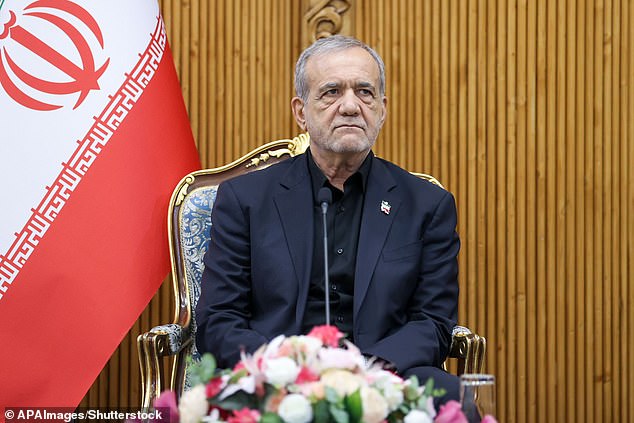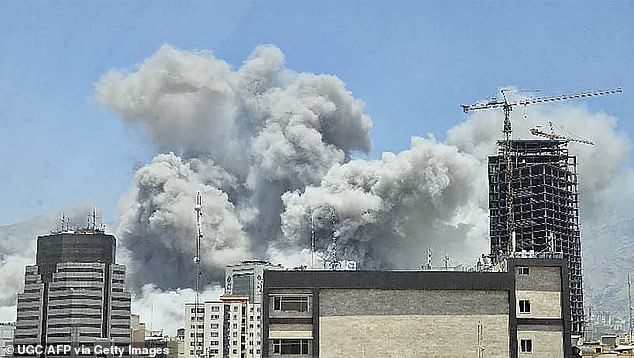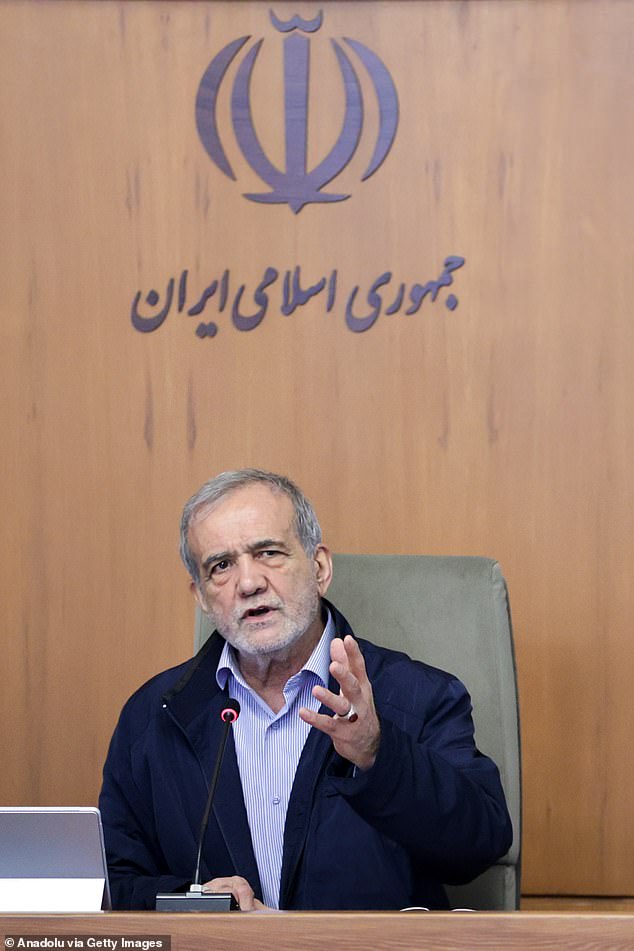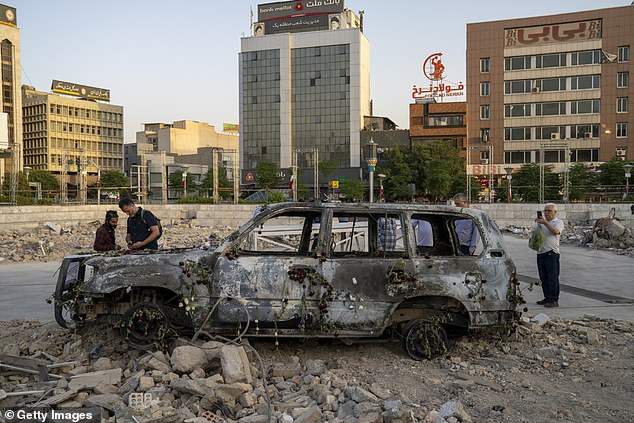Iran has confirmed that president Masoud Pezeshkian was wounded during an Israeli airstrike that targeted a high-level government meeting in Tehran last month.
Mr Pezeshkian, 70, is said to have sustained a leg injury and was forced to flee the building through a pre-planned emergency hatch.
Six missiles reportedly struck a building in western Tehran where the Supreme National Security Council was meeting, injuring several senior officials.
The strike, which was part of a 12-day war between the two nations, is said to have targeted the entrances and exits to block escape routes and disrupt air flow within the compound.
Fars news, which is affiliated with the Islamic Revolutionary Guard Cops, described the strike as bearing similarities to the Israeli operation that killed Hezbollah leader Hassan Nasrallah in Beirut.
The report said: ‘The attack occurred before noon on Monday, June 16, while a meeting of the Supreme National Security Council was being held with the heads of the three branches of government and other senior officials in the lower floors of a building in western Tehran.’
‘The attackers targeted the building’s entrances and exits by firing six bombs or missiles to block escape routes and cut off air flow.’
Other senior officials present at the meeting reportedly included parliamentary speaker Mohammad Bagher Ghalibaf and judiciary chief Mohseni Ejei.

Iran has confirmed that president Masoud Pezeshkian was injured during an Israeli strike on a building where senior officials were meeting

The airstrike, part of the 12-day war between the two nations, resulted in the destruction of many buildings
Several people were injured, with Fars reporting that ‘some officials, including the president, suffered minor injuries to their legs while leaving’ and escaped using ‘an emergency hatch that had been planned in advance’.
It also noted that power was cut off on the affected floor after the explosions.
The revelation is in line with claims made by Mr Pezeshkian in a recent interview, in which he accused Israel of trying to assassinate him.
Speaking to political commentator Tucker Carlson, the president said: ‘They did try, yes… They acted accordingly, but they failed.’
However, he did not mention being injured during the interview. Despite the president’s calm tone, his remarks triggered a backlash among Iranian lawmakers.
Twenty-four MPs signed an open letter accusing him of undermining national security.
The criticism was also aimed at his apparent willingness to re-engage with the United States, despite tensions over American airstrikes on nuclear sites and Iran’s recent expulsion of the International Atomic Energy Agency.
‘From a national security standpoint, such messaging risks inviting further aggression,’ the MPs wrote.

The president’s remarks have been criticised by lawmakers who have written an open letter to him

More than 700 people accused of working with Israel, in the strikes that devastated Iran, have now been detained
‘If before June 12 there were diverse views on resisting American overreach, this war generated rare unity around the necessity of confronting the United States and its proxy, the Zionist regime.’
Iran has responded to the June conflict by launching a crackdown on suspected collaborators. Authorities have arrested more than 700 individuals accused of working with Israel.
A new emergency espionage law is also being debated, which would introduce harsher punishments for spying, including capital punishment.
Fars did not disclose the precise location of the strike, though opposition outlet Iran International reported that an Israeli airstrike targeted an area near Shahrak-e-Gharb in western Tehran on the same day.
Senior IRGC official Mohsen Rezaei also commented on the attack, telling state television: ‘Israel struck six points at the location where the Supreme National Security Council was meeting, but not the slightest harm was done to any of its members.’











